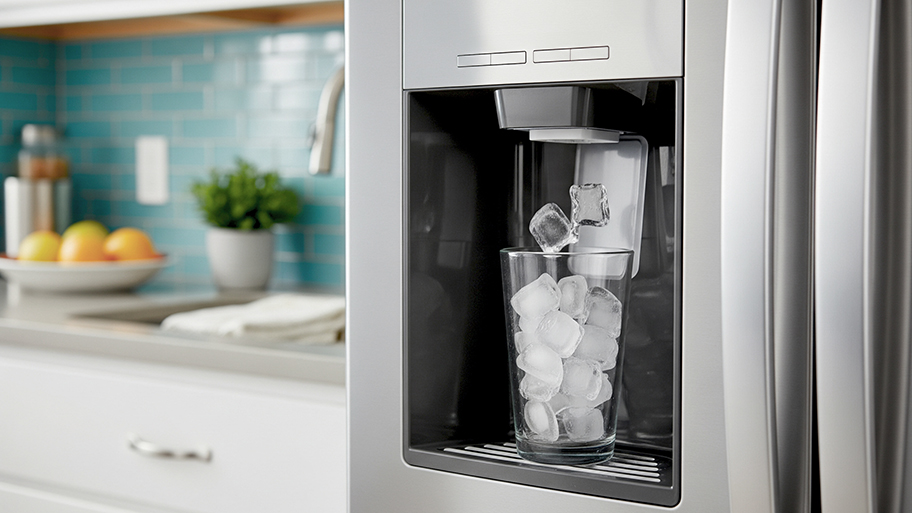
Looking to keep warm this winter without the high utility bills? Use this pellet stove installation cost guide to see what a natural heating solution will cost.
We’re dishing on the efficiency of modern dishwashers


Modern dishwashers are much more efficient than their older counterparts.
You can save $465 per year on energy and water bills with a dishwasher.
Handwashing your dishes will use more water than a dishwasher.
Dishwashers sanitize plates better than handwashing.
If you’re about to clean up after a big meal, it’s only fair to ask—do dishwashers save water? Many people are surprised to learn that modern dishwashers do a magnificent job conserving water compared to the handwashing method. This revelation flies in the face of what many of us have been told in years past. Growing up, you may have heard not to run the dishwasher unless it’s full. Or maybe you were told to pre-rinse or handwash dishes to conserve water.
Times have changed—for the better. Here’s what to know about how modern dishwashers can save water, energy, and money.
The exact amount of water a dishwasher saves will depend on its make, model, and size. An older dishwasher uses 10 to 15 gallons of water per load. But a newer, Energy Star®-certified dishwasher uses a fraction of that, 3.5 gallons or less per load.
Even if you’re washing a few dishes by hand, you’ll likely save water by putting them through the dishwasher. Kitchen faucets use 1.5 to 2 gallons of water a minute, while handwashing uses 9 to 27 gallons per load. With an efficient dishwasher, you could save upward of 23 gallons per load compared to handwashing.
While handwashing water usage varies widely depending on the size of the load and method, dishwashers consistently use the same amount per load, likely saving you water over time.
Not only will a dishwasher save you water, it’ll save you money. With an energy-efficient dishwasher, you could save an average of $465 annually on energy and water bills.
With the help of a dishwasher installation professional near you, you can have a new appliance running swiftly, saving you water and cash.

Overall, using a dishwasher will save you water compared to handwashing. However, both methods have benefits and drawbacks.
| Pros | Cons |
|---|---|
| Saves time | Expensive installation |
| Energy- and water-efficient | Requires replacement every 10 to 20 years |
| High-heat sanitation | Requires upkeep and maintenance |
| Different models available | Can be tough on delicate dishware |
Dishwashing comes with the benefit of time, energy, and water savings. But purchasing and installing a dishwasher can come with a high price tag, $1,200 on average. However, the cost of a dishwasher should pay for itself in about three years, based on energy and water savings.
While using a dishwasher daily will save you time and money, it does come with its own maintenance requirements. Dishwashers can also be tough on more delicate cook and dining wear, leading to cracks or breakage over time.
| Pros | Cons |
|---|---|
| Safer for delicate dishware or fragile plastics | More manual labor |
| Quick washing for small loads | Less energy and water-efficient |
| Detailed cleaning | Can be less sanitary |
When it comes to handwashing, it’s all about the details. Washing dishes by hand means getting into all the nooks and crannies of an item that a dishwasher could miss. Handwashing is also more delicate than a dishwasher, which could extend the life of plates and glasses.
However, handwashing will take up more of your time and likely end up costing you more down the line. Also, depending on the heat of the water and the condition of the kitchen sponge, “clean” dishes are unlikely to be thoroughly sanitized. Sponges can harbor bacteria, and dishes require high heat, often hotter than a sink, to be adequately cleaned.
Any dishwasher will save water, but if you’re selecting a new model, you can find one that maximizes water usage. Here’s what to keep an eye out for in a high-efficiency dishwasher.
Dishwasher size: In a larger household, you should opt for a larger model that requires running the appliance less, saving water with each load. Learn how to measure a dishwasher to determine what model will fit your kitchen.
Type of dishwasher: Different types of dishwashers will be better fits for unique kitchen layouts, budgets, and needs. Each uses various amounts of water.
From average costs to expert advice, get all the answers you need to get your job done.

Looking to keep warm this winter without the high utility bills? Use this pellet stove installation cost guide to see what a natural heating solution will cost.

Discover the average ice maker repair cost, key price factors, and tips to save. Learn how to budget for your ice maker repair and when to repair or replace.

Discover the average cooktop installation cost, key price factors, and tips to save. Learn what impacts your total cost and how to budget for your new cooktop.

Now the reasons why your dryer is leaking water and what you can do to prevent further water damage and address the problem.

Not sure who to hire to repair a wood pellet or gas stove? See which pro to call, what they do, and how the repair process works.

Keep standing water and water damage from a clogged laundry drain at bay with this guide. Follow these steps for how to unclog a washer drain.